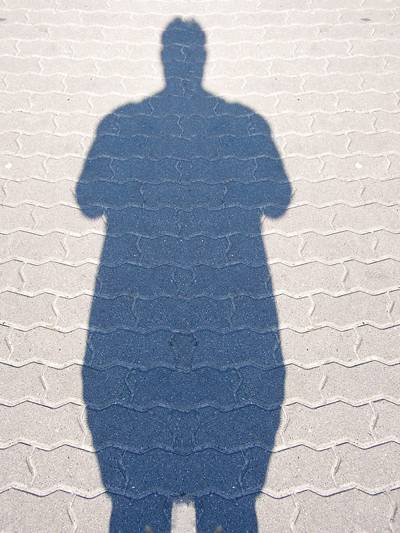PRELL: Start lovin’ your genes

Althought anorexia nervosa, binge-eating disorder and bulimia nervosa are the named eating disorders, obesity should be added to the list, writes Sophie Prell. Photo Courtesy: Sxc.hu/mzacha
February 23, 2009
Feel good in your genes.”
That’s the message this week, as National Eating Disorder Awareness begins. Feel good in your genes. And for once, I’m not so sure I approve of a feel-good message.
Don’t get me wrong, I am absolutely aware of the enormous social pressures that can come down hard on all of us, especially our age group. And if you’re a girl, you ought to have a medal simply for putting up with this crap for so long.
And, being aware of said pressures, I more than realize it’s extremely hard to be proud of who you are, maintaining comfort in your own skin. I’m empathetic to that plight, I really am.
But there’s something about National Eating Disorder Awareness week that actually bothers me: The terms and definitions listed on the Web site. Anorexia nervosa, binge-eating disorder and bulimia nervosa.
Technically, the one I’m about to claim as missing isn’t classified as a disorder. But seeing how disorder is defined as “a physical condition in which there is a disturbance of normal functioning,” I feel it fits. Have you guessed which one it is?
It’s obesity.
You’ve surely heard the belief that America’s the greatest, yes? That we’re number one? Well, when it comes to obesity, that’s actually true. We are, collectively, the heaviest developed nation in the world. No gold medal for that, by the way. Just golden arches.
Bah-dah-bah-bah-bah, better start lovin’ it.
According to the 2004-2006 data from the CDC’s Behavioral Risk Factor Surveillance System, a national health survey, there isn’t a single state with half or fewer of its inhabitants within healthy weight range. The closest state is Colorado, with 54.2 percent of its residents marked as overweight. It is also the only state with fewer than 20 percent of the population marked as obese.
The Body Mass Index is the system most commonly used for obtaining labels such as underweight, optimal, overweight and obese, but it should be noted that BMI alone is not entirely accurate. Lately, the system has come under scrutiny lately for not being able to distinguish between fat and muscle, and this can tip the scale either direction.
On this scale, a strong man with a lot of muscle might be classified as overweight or obese, even though he could be called fit as a fiddle by the majority of us. A very large, imposing, somewhat terrifying fiddle that is.
Or, on the other end of the spectrum, a woman post-menopause could be incorrectly categorized due to her loss of muscle. She would likely fall within the “optimal” BMI category, yet her body fat concentration could very well be above 32 percent, the lower threshold of obesity.
I tell you this because I don’t want people running home, busting out the Wii Fit and suddenly start feeling depressed because the game — which uses BMI — marked one of those dreaded categories of overweight or obese, something it’s been criticized for doing.
But at the same time, I’m tired of hearing excuses. I’m tired of people looking for a way to absolve themselves of responsibility. By looking to solutions like fad diets and weight loss pills, people want to take an easy way out and avoid. Avoid criticism, avoid responsibility, avoid work.
I don’t buy into that theory. I was a chubbykins in high school, and I made an effort to become healthy. I think others can do that too.
And no, no, a thousand times no, I am not saying that people need to be stick thin. I am not trying to insult anyone. I’m not demanding people need to change to fit in with what we consider to be beautiful in this distinctly American culture. I am absolutely not here to judge you. I’m not you. I’m not going to tell you how to run your life.
But if you’re not healthy, please take the steps to get there.
Oh, and that teensy bit of squish to your body?
That’s okay!
That fold your stomach gets when you sit down?
That’s okay!
These are not signs that you are fat. Guess what you are if you have those attributes: Normal! Healthy!
I’m not advocating for runway thin. I’m not advocating for lean mean muscle machine. I’m advocating health — plain and simple. And you don’t become healthy by pushing your body beyond its limits.
All the fad diets in the world aren’t going to make you healthy. The weight loss pills aren’t going to give you the results you want. And I’m sorry to say this to you, Girl-on-bicycle-at-Lied, but pedaling at a comfortable pace for 20 minutes a day isn’t going to get you there either. It’s a start, but you’ll need to do more than that too.
If you’re out of shape, getting in shape is hard work. There is simply no way around that. It’s long, difficult, sweaty work.
Yes, be comfortable in your genes. Be confident in body and mind. Be proud of yourself no matter what your shape or size.
Just make sure to take care of yourself. Be healthy. Start a dialogue, reach out and don’t be ashamed or afraid. People are here, right now, on Iowa State’s campus. The Student Counseling Center is available 8 a.m. until 5 p.m. Monday through Friday, and they’re glad to help in any way they can.
If you’re looking for a dose of exercise, Lied Recreation Athletic Center offers group fitness sessions — free of charge to students — and personal trainers for a rated fee.
— Sophie Prell is a junior in pre-journalism and mass communication from Alta.






